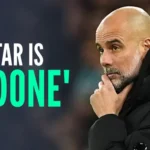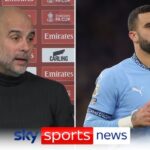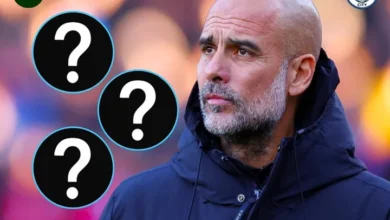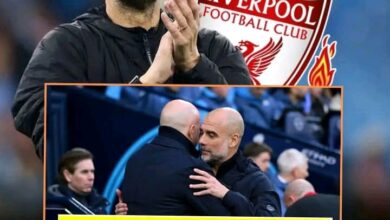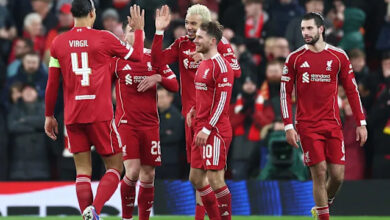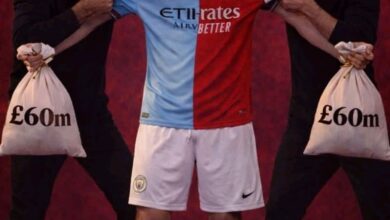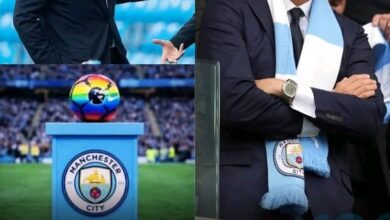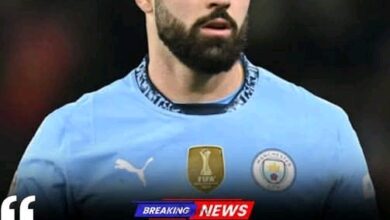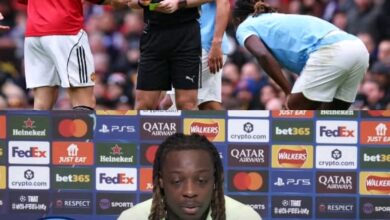Exceptional’ Man City player could now do a transfer U-turn this summer and stay at the Etihad
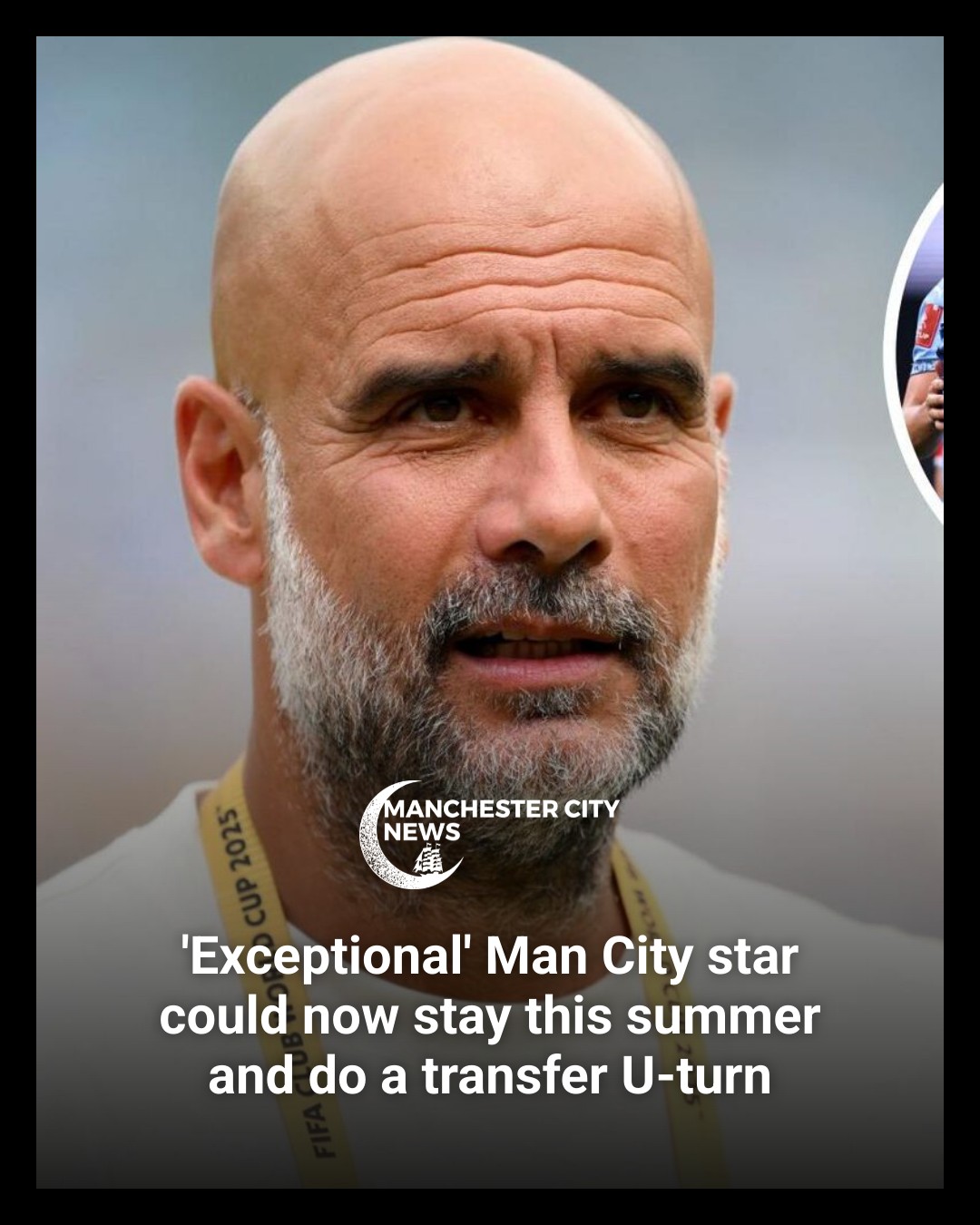
The departure of Kevin De Bruyne represents perhaps the most significant loss for Manchester City in recent memory. The Belgian maestro, widely regarded as one of the finest midfielders of his generation, has been the creative heartbeat of Guardiola’s system for several seasons. His ability to thread passes through the tightest of spaces, deliver pinpoint crosses, and contribute crucial goals in important moments made him virtually irreplaceable in the City setup. De Bruyne’s departure signals not just the loss of exceptional technical ability, but also the end of an era defined by his leadership qualities and match-winning capabilities.
Kyle Walker’s exit is equally significant from both a tactical and emotional perspective. The England international has been a cornerstone of City’s defensive structure, providing pace, athleticism, and experience at the highest level. His understanding of Guardiola’s complex tactical system, particularly the inverted fullback role that became synonymous with City’s possession-based approach, made him an invaluable asset. Walker’s departure leaves a considerable void in terms of leadership and defensive solidity, qualities that are not easily replaced in the modern transfer market.
The inclusion of Maximo Perrone in this list of departures highlights the club’s willingness to make difficult decisions even regarding promising young talent. The Argentine midfielder, who arrived with considerable expectations and potential, represents the type of calculated gamble that modern clubs must take in their pursuit of continuous improvement. His departure suggests that the club’s assessment of his development trajectory may not have aligned with their immediate tactical requirements or long-term strategic vision.
Goalkeeping Department in Flux: The Ederson Situation
Perhaps no position exemplifies the current state of uncertainty at Manchester City more than the goalkeeping department. Ederson Moraes, who has been instrumental in revolutionizing the modern goalkeeper’s role through his exceptional distribution and ball-playing abilities, finds himself at the center of transfer speculation linking him with a move to Turkish giants Galatasaray. Such a move would represent a seismic shift for City, as Ederson’s unique skill set has been fundamental to Guardiola’s tactical philosophy.
The Brazilian’s ability to launch attacks from the back with his exceptional passing range has been a crucial component of City’s build-up play. His comfort with the ball at his feet allows the team to play out from the back even under intense pressure, creating numerical advantages in midfield areas. More than just shot-stopping ability, Ederson has provided the technical foundation that enables City’s high defensive line and aggressive pressing system to function effectively.
The potential arrival of James Trafford as a replacement represents an intriguing development in City’s transfer strategy. Trafford, who has demonstrated considerable promise in his career trajectory, would represent a significant step up in terms of responsibility and expectation. However, the transition from his current level to the demands of competing at the highest echelons of European football presents considerable challenges that cannot be underestimated.
Stefan Ortega’s situation adds another layer of complexity to the goalkeeping equation. Reports suggesting that his camp is actively assessing options indicate that the German international may not be content with a backup role, despite his professional approach to the situation during his time at the club. Ortega’s desire for regular first-team football is understandable given his age and career aspirations, but his potential departure would leave City with limited experienced options between the posts.
The James McAtee Conundrum: Academy Talent at a Crossroads
The situation surrounding James McAtee perfectly encapsulates the challenges facing modern football clubs in managing young talent while pursuing immediate success. The English midfielder represents the type of academy graduate that clubs invest years developing, hoping to see them eventually make the transition to first-team regulars. However, the gap between academy football and the demands of competing at Manchester City’s level presents significant challenges that not all players can successfully navigate.
McAtee’s reported talks with Eintracht Frankfurt demonstrate the international appeal of English academy products, particularly those developed within City’s highly regarded youth system. The German club’s interest suggests that McAtee’s talent is recognized beyond English football, providing him with options that could accelerate his development through regular first-team exposure. The Bundesliga’s reputation for providing young players with opportunities to develop their craft makes Frankfurt an attractive proposition for a player seeking to establish himself at senior level.
Nottingham Forest’s pursuit of McAtee, along with their broader interest in Manchester City academy graduates, reflects a growing trend of Premier League clubs targeting the surplus talent produced by the league’s most successful academies. Forest’s approach suggests they view City’s academy products as potentially undervalued assets who could provide significant value both in terms of immediate contribution and future resale potential.
The complexity of McAtee’s situation is further highlighted by journalist Ben Jacobs’ revelation that the midfielder could potentially remain at City despite the speculation surrounding his future. This unexpected development draws parallels to the Cole Palmer situation, where a talented young player was initially expected to leave before eventually securing his departure to Chelsea. The comparison is particularly relevant as it demonstrates how quickly circumstances can change in the modern transfer market.
Strategic Implications of the Exodus
The scale of departures at Manchester City raises fundamental questions about the club’s strategic direction and their approach to squad management. The simultaneous loss of experience, leadership, and technical ability represented by these departures creates both challenges and opportunities for Guardiola and the club’s recruitment team. The manager’s ability to adapt his tactical approach to accommodate new personnel while maintaining the club’s competitive standards will be severely tested.
From a financial perspective, these departures could provide significant resources for reinvestment in the squad. The transfer fees and wage savings generated by these exits could enable City to pursue high-profile replacements or invest in multiple areas of the squad that require strengthening. However, the challenge lies in finding players who can not only match the technical abilities of those departing but also adapt quickly to Guardiola’s demanding tactical system.
The timing of these departures, coming during a period of intense scrutiny regarding Financial Fair Play regulations, adds another dimension to the club’s decision-making process. The need to balance the books while maintaining competitive standards creates a complex equation that requires careful navigation to avoid compromising the team’s ability to compete at the highest level.
The Broader Context: Modern Football’s Transfer Reality
Manchester City’s current situation reflects broader trends in modern football, where even the most successful clubs must regularly refresh their squads to maintain competitive advantage. The combination of player aging, contract situations, financial pressures, and changing tactical requirements creates a constant need for evolution that no club can escape, regardless of their success or resources.
The challenge for City lies in managing this transition period while maintaining their status as one of Europe’s elite clubs. The departure of established stars creates opportunities for younger players to step up, but also increases the risk of a temporary decline in performance as new players adapt to the demands of competing at the highest level.
The role of Pep Guardiola in this transition cannot be overstated. The Catalan manager’s ability to develop players and implement complex tactical systems will be crucial in ensuring that new arrivals can quickly contribute to the team’s success. His track record of improving players and adapting his tactics to suit available personnel provides reason for optimism despite the challenges posed by the current exodus.
Looking Forward: Challenges and Opportunities
As Manchester City navigates this period of significant change, several key factors will determine their ability to maintain their competitive edge. The club’s recruitment team faces the challenge of identifying players who possess not only the technical ability to succeed at the highest level but also the mental attributes necessary to thrive under Guardiola’s demanding system.
The development of existing squad members will also play a crucial role in determining City’s future success. Players who may have previously been considered peripheral figures could find themselves with enhanced opportunities to contribute, creating potential breakthrough stories that could benefit both the individuals and the club.
The academy system that has produced players like McAtee will face increased scrutiny as the club seeks to maximize the return on their youth development investment. The ability to successfully integrate academy graduates into the first team could provide both immediate solutions and long-term sustainability for the club’s competitive aspirations.
Conclusion: A New Chapter Begins
Manchester City’s summer of significant departures represents more than just routine squad management; it marks the beginning of a new chapter in the club’s recent history. The departure of iconic figures like De Bruyne and Walker, combined with the uncertainty surrounding other key players, creates both challenges and opportunities that will define the club’s trajectory in the coming seasons.
The success of this transition period will ultimately be measured not just by the immediate replacements brought in, but by the club’s ability to maintain their competitive standards while adapting to a changing landscape. Guardiola’s expertise in managing such transitions, combined with the club’s resources and infrastructure, provides the foundation for optimism despite the magnitude of the changes taking place.
As the transfer window progresses, Manchester City’s ability to navigate these departures while strengthening their squad will serve as a testament to their long-term planning and strategic vision. The decisions made during this crucial period will likely influence the club’s competitiveness for years to come, making this one of the most significant summers in their recent history.

